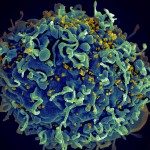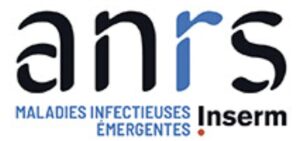We are delighted to share a summary of the recent 3rd France-Japan Symposium on HIV and Infectious Diseases, held from October 28th to 30th at Institut Pasteur, Paris.
Organized by the ANRS MIE Coordinated Action AC41, in collaboration with the renowned Institut Pasteur, this annual event brought together more than 160 attendees from across the scientific community, including researchers, clinicians, and young scientists, in a celebration of groundbreaking discoveries and Franco-Japanese collaboration.
Since 2019, the AC41 community has been at the forefront of HIV fundamental and translational research. Addressing cross pathogens questions, it expanded naturally to cover other viruses, from hepatitis viruses and HLTV to many other emerging viral diseases today, for facilitating numerous Franco-Japanese collaborations. The annual symposium has become a pivotal platform for knowledge exchange and scientific partnerships between France and Japan, capitalizing on each country’s strengths in infectious diseases research.
Key Scientific Highlights and Breakthroughs
This year’s symposium showcased significant scientific advances and diverse research presentations, highlighting:
- Identification of new antiviral targets
- An innovative algorithm for the detection of novel RNA viruses
- Modelling studies to understand key elements of the viral transmission and pathogenesis
- Advanced animal models for studying aging and COVID-19 susceptibility
- Potential identification of a yet unknown precursor of tissue resident T cells
- Spatial localization of functional and non-functional antiviral T cells in tissues
- Innovative approaches tested in perspective of HIV cure
- unprecedented tools to visualize proviral expression, among many other results
These discussions underscored the value of bilateral cooperation, demonstrating how Franco-Japanese synergies can drive forward solutions to global health challenges.
Empowering the Next Generation of Scientists
We were especially proud to feature ten young scientists—five from each country—who presented their research to an international audience. These emerging scientists received valuable recognition and constructive feedback, reflecting our commitment to fostering the next generation of experts. Some of these young researchers also had the opportunity to visit established laboratories, thanks to the Principal Investigators who opened their facilities. To further highlight these contributions, the ANRS MIE will publish online interviews with these promising scientists.
Building Bridges Through Networking
The symposium’s “speed dating” sessions offered a unique networking opportunity, with 66 participants engaging in 91 one-on-one meetings. These interactions paved the way for potential collaborations and fostered new research connections, reinforcing the collaborative spirit of the event.
Acknowledgments
We extend our deepest gratitude to the Japanese delegation, whose contributions enriched our discussions. Special thanks also go to the Institut Pasteur, particularly their International Affairs team, that joined us this year to co-organize the event: they played an instrumental role in gathering all the community in this internationally renowned research Institute on infectious diseases. We are equally thankful to our other financial partners—Université Paris Cité and the Graduate School of Life Sciences and Health at Université Paris-Saclay—for their critical support.
Looking Ahead
As we reflect on the success of this year’s symposium, we remain inspired by the commitment, insights, and expertise of everyone involved. We look forward to further strengthening the partnership between France and Japan with the next France-Japan symposium scheduled for 2026.
AC41 – ANRS MIE
Revisit the memorable moments by viewing the event photos here : https://filesender.renater.fr/?s=download&token=9708bad8-c39c-4a54-99c0-7afcd38def3f




